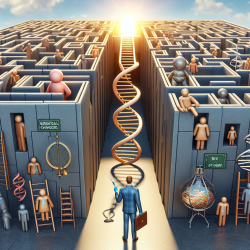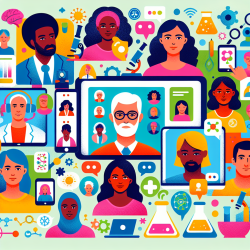Understanding the Legal Frameworks in Genetic Counseling: A Path to Safer Practices
Genetic counseling is a rapidly evolving field, with professionals taking on more comprehensive roles in healthcare. However, the lack of appropriate legal frameworks can pose significant risks to public safety. The recent research article, "Legal approaches to risk of harm in genetic counseling: perspectives from Quebec and Qatar," highlights these concerns and offers insights into how practitioners can improve their skills and contribute to safer practices.
Why Legal Frameworks Matter
The absence of legal recognition for genetic counseling in many jurisdictions means that anyone can claim to be a genetic counselor, potentially leading to inappropriate testing, wrongful births, and other harms. Legal recognition serves to protect the public by regulating the safe and competent practice of healthcare professionals. This blog explores the legal status of genetic counseling in Quebec and Qatar, highlighting the potential risks of harm and the need for regulatory mechanisms.
Comparing Quebec and Qatar
In Quebec, genetic counselors work in various settings, including medical genetics, oncology, and private industry. Despite their expanding roles, genetic counseling is not legally recognized, which limits public protection measures. The potential for harm includes inappropriate testing and breaches of confidentiality, among others.
In contrast, Qatar has implemented a national registration requirement for genetic counselors, legally recognizing the profession. However, the guidelines lack specific measures to address potential risks of harm, such as breaches of confidentiality and social stigmatization resulting from mandatory premarital screening programs.
Recommendations for Practitioners
- Advocate for Legal Recognition: Practitioners in jurisdictions without legal recognition should advocate for regulatory frameworks that include title protection, scope of practice, and continuous oversight.
- Enhance Cultural Competence: Understanding the socio-cultural and religious contexts in which genetic counseling is practiced can help mitigate potential harms. Special training programs can improve practitioners' cultural competence.
- Promote Public Awareness: Increasing public awareness about the significance of genetic tests and the role of genetic counselors can help reduce misconceptions and potential harms.
Conclusion
While the types of risks of harm may differ due to legal and socio-cultural differences, the case for the legal recognition of genetic counseling and the implementation of public protection measures in both Quebec and Qatar is compelling. Whether through legislation or the application of religious and cultural norms, these measures are necessary to ensure safer and higher quality genetic counseling services for patients.
To read the original research paper, please follow this link: Legal approaches to risk of harm in genetic counseling: perspectives from Quebec and Qatar.










